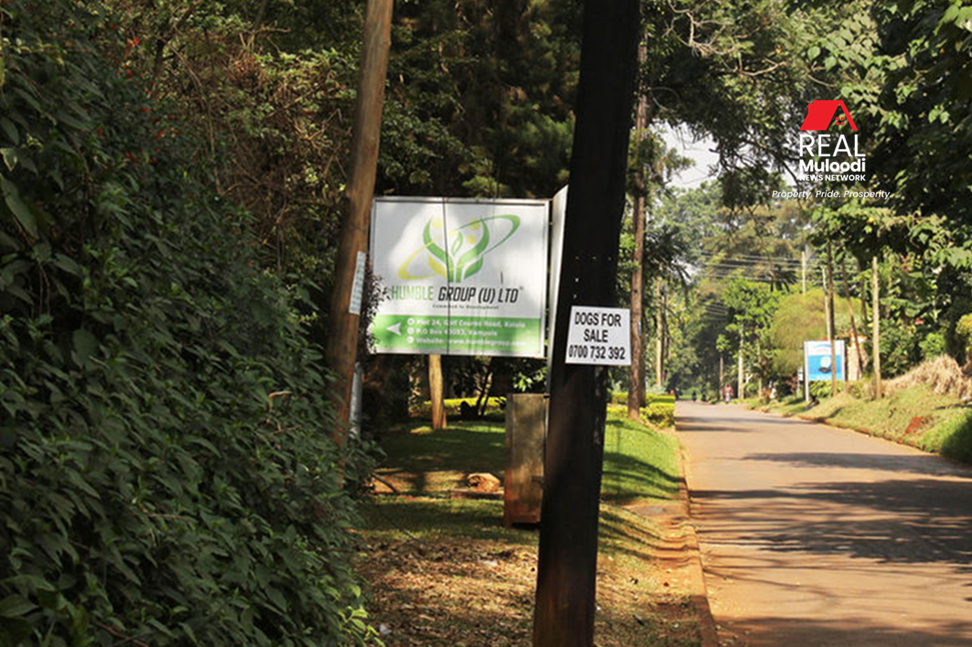UGANDA, Kampala | Real Muloodi News | The conversion of residential properties into commercial properties has been a common phenomenon in suburbs like Muyenga, Kololo, and Bugolobi in Uganda. These once vibrant family communities are now home to towering office buildings.
A few years ago, lawyers had their offices in central locations like Nkrumah Road or Entebbe Road, but now they have been forced to move to areas like Kololo, Nakasero, or Bugolobi due to changes in the real estate market.
Dennis Jjuuko, a real estate consultant, says that lawyers must move to these areas to match the level of their clients.
“For example, MMAKS was previously housed at Diamond Trust building but is now in Bugolobi because that is the place that matches the level of their clients. If you are to insist to stay at the likes of Conrad Plaza, you must be the sole source of something one needs for them to come your way,” he says.
The shift in the real estate market has put pressure on landlords to upgrade their properties to meet the demands of clients who need easy access and parking.
“Either way, those that buy such property will have to part with a lot that they cannot put up a residential house as it will not make as much money to recover the huge sums sunk in. The only way is to go commercial because one is looking at making more money out of their investment,” Jjuuko says.
Moses Lutalo, the Managing Director of Broll Uganda, says this shift is a natural phenomenon caused by competition and dominance.
The Central Business District (CBD) is expanding, which is pushing residential areas out. As a result, new low-density high-end residential neighbourhoods like Lubowa are emerging. Security has also played a role in the shift in office spaces.
“Looking at how the Central Business District (CBD) is expanding hence pressure on the infrastructure, whereas Kololo was predominantly a residential, high-end, and lower density place, it is also pushing residentials out. That means we have to look for new low density high end residential neighbourhoods. That is why places such as Lubowa are coming up,” he says.
A few years ago, some embassy offices and organisations like the British Council were located around Parliamentary Avenue, but they have since moved for security reasons.
The rising property values in areas near the CBD have created opportunities for owners to sell their properties and move to areas like Kira.
Some families have also decided to sell their properties instead of renting them out for a more tangible investment.
Sharon Kamayanji, the Head of Commercial at Knight Frank, says that restaurants are taking up these spaces because the market is growing and residential areas are becoming difficult to rent out.
The change in office space taste has also played a role in the shift to residential areas. Previously, most offices were found in Nakasero, but now they have moved to places like Bugoloobi and Ntinda.
Clients are continually seeking and leaving spaces, and businesses that need quiet locations are choosing more laid-back residential-looking spaces.
“Those that are taking up stand-alone spaces are looking for something that offers more privacy, and greenery as opposed to brick and mortar. As such, some are leaving the typical office building to residential looking spaces,” she says.
Some property owners have decided to sell their properties to pay off loans or to invest in other alternatives.
“Businesses that need quiet locations, those that render services to people in areas such as day care centres. Construction companies, and consultancies may also prefer these areas because they do not need the clients to come to them, it is the reverse. So they have the flexibility to choose a laid back location,” Kamayanji says.
Lucy Kaitesi of the commercial division of Knight Frank says that some sell their properties because they have mortgages or other pressing loan facilities.
The trend of converting residential properties into commercial properties is expected to continue as long as there is urbanisation.
“That way, the money got from the sale will settle the loan facility while the rest is used to buy another home,” Kaitesi says.
However, the end of this trend is not in sight unless there is a deliberate effort to zone out areas for residential and commercial or mixed occupation.
Lutalo says this trend is expected as long as there is urbanisation. “If the rate is at 3.2 percent or 3.5 percent, the pressure on the infrastructure and its existing usage will spill over. As more people come to urban centres, they are looking for places to stay and work,” he says.
He adds, “the master plan of Lubowa is very deliberate where although it is mixed use (live, work, play), the different areas; residential and commercial are clearly demarcated. However, that was not the case for the likes of Kololo because KCCA does not control people’s land. So everyone is looking at how best they can utilise their land. As such, one will put up an apartment next to a diplomatic residence.”



